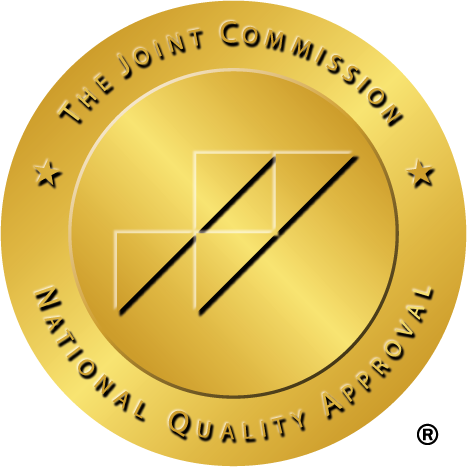The customary approach to mental health assessment is well-known to many – discussing symptoms and history with a psychiatrist or psychologist. However, a private psychiatric assessment offers an alternative by enabling an evaluation from a specialist outside the typical mental health system.
This assessment proves advantageous for individuals who feel uneasy discussing their mental wellness in a clinical environment or struggle to access and afford regular appointments with a psychiatrist or psychologist. Continue reading to learn more about private psychiatric assessments and how our Psychological Evaluation in North Carolina can help you start your journey to recovery.
SPEAK WITH AN ADMISSIONS COUNSELOR TODAY
Differences Between Public and Private Psychiatric Assessments
Understanding the distinctions between public and private psychiatric assessments, also called a psych evaluation, can help you make informed decisions when choosing the proper care for your unique needs [1].
Public Psychiatric Assessments
Public hospitals and community mental health centers, which the government funds, offer licensed mental health professionals who conduct public psychiatric assessments. Skilled in mental health treatment, these professionals also provide various support services such as counseling and medication management to help address multiple issues including ADHD, eating disorders, personality disorders, and other mental health conditions.
However, public assessments also come with some drawbacks. Due to the high demand for services, patients may face lengthy appointment wait times. Additionally, the increased patient volume may make patients feel rushed and not receive the personalized attention they need.
Private Psychiatric Assessments
Specialized psychiatrists conduct private psychiatric assessments in exclusive offices. These services are not government-funded, so patients can pay out of pocket or use their insurance plans. The psychiatrists create customized treatment plans that cater to each patient’s needs and provide personalized attention.
Private psychiatric assessments typically offer faster wait times and easier-to-schedule appointments. However, the cost of these services can be a significant barrier for some patients, and insurance plans do not always cover them.
How to Prepare for a Private Psychiatry Assessment
Receiving proper care and treatment is crucial for individuals with behavioral and psychological issues. How you prepare for your private psychiatric assessment can significantly affect the quality of care you receive and your overall well-being.
1. Find the Right Psychiatrist
To have a successful private psychiatric assessment, the first step is to find the right psychiatrist. You can start by looking up certified and experienced psychiatrists with positive reviews.
You can also ask your family or friends for recommendations. After finding a potential psychiatrist, check their experience and specialization online and schedule a consultation to evaluate if their approach suits your requirements.
2.Understand the Assessment Process
Before you go for your private psychiatric assessment, take some time to research and understand the assessment process. Psychiatric assessments typically involve personal interviews, observation, and tests to assess your mental and emotional state. Researching the process helps you know what to expect during the evaluation and eases your anxiety.
3.Prepare for the Interview Questions
To prepare for your psychiatric assessment interview, you will be asked questions about your life and emotions. Reflecting on your experiences, challenges, and worries is essential. Consider how you will respond to challenging questions and be genuine, as your answers will assist the psychiatrist in comprehending your situation.
4.Gather Relevant Information
To ensure optimal care and treatment, it’s important that you gather all necessary details about your mental and physical health, such as your medical history, medication use, family medical history, and past treatments for psychiatric conditions like panic attacks, OCD (Obsessive Compulsive Disorder), schizophrenia, and sleep disorders. Sharing this information with your psychiatrist will all them to better understand your situation and to offer you the best possible care.
5.Practice Self-Care
Before your psychiatric assessment and afterward, it is essential to prioritize self-care through healthy sleep, nourishment, and intentional breaks to recharge your mental and emotional well-being.
Refraining from drug and alcohol consumption is crucial to ensure that your cognitive abilities and judgment remain unimpaired. Invest in your mental and physical health for a successful and beneficial assessment experience.
When to Consider a Private Psychiatric Assessment
Private psychiatric assessments can be beneficial for various reasons, from diagnosing mental health issues to providing personalized treatment plans. However, it’s essential to know when to consider a confidential assessment instead of seeking help from your primary care doctor or a public mental health clinic.
1.Long Waiting Times in Public Health Services
One of the significant advantages of private psychiatric assessments is shorter waiting times. If you are experiencing severe mental health symptoms and need immediate attention, waiting for an appointment through public services can be frustrating and potentially harmful. A private psychiatric assessment can provide quicker access to specialized care in such cases.
2.Comprehensive and Thorough Evaluation
Private psychiatric assessments often involve a more in-depth and comprehensive evaluation than public services. This thorough assessment may include extensive interviews, questionnaires, and psychological testing [2]. The detailed nature of these assessments can lead to more accurate diagnoses and personalized treatment plans tailored to your specific needs.
3.Confidentiality and Privacy Concerns
If you have concerns about your privacy and confidentiality when seeking mental health support, a private psychiatric assessment can offer more discretion. Information shared during private sessions is typically subject to strict confidentiality agreements, ensuring your personal details remain secure.
4.Personalized and Flexible Approach
Opting for private psychiatric assessments provides an individualized and flexible strategy to tackle mental health issues effectively. By selecting a psychiatrist or psychologist who matches your requisites, like their field of specialization, experience level, and communication manner, you can benefit from a tailor-made care approach that conventional healthcare facilities seldom offer.
Additionally, private practitioners afford greater scheduling flexibility, making it convenient to schedule appointments that align with your hectic schedule. Choose the private route to achieve personalized mental healthcare at its finest.
5.Limited Availability of Specialists in Your Area
Access to mental health specialists can be limited in some regions, particularly for specific conditions or age groups. A private psychiatric assessment may be the best option if you’re struggling to find an appropriate mental health professional in your area. This can help ensure that you receive specialized care from an experienced professional.
6.Seeking a Second Opinion
If you’ve already received a diagnosis or treatment plan through public services but feel uncertain about the accuracy or effectiveness of the recommendations, a private psychiatric assessment can provide a valuable second opinion.[3] This can offer additional insights and potentially lead to more effective treatment options.
SPEAK WITH AN ADMISSIONS COUNSELOR TODAY
Private Psychiatric Assessment FAQs
The cost of a private psychiatric assessment is not fixed and can depend on various factors. These factors include the level of expertise of the psychiatrist, the complexity of the case, and the location.
Typically, the price range falls between $200 and $500 per hour, although some professionals may either charge more or less. To get a better idea of the exact cost of your assessment, it’s essential to schedule a consultation with the psychiatrist first.
Whether or not insurance covers a private psychiatric assessment depends on your specific insurance plan and provider. Some plans may cover part or all of the cost, while others may not. It’s essential to check with your insurance provider beforehand to determine your coverage and any potential out-of-pocket expenses.
After completing a private psychiatric assessment, a psychiatrist can connect you with mental health professionals such as therapists, psychologists, or counselors. These referrals grant you access to tailored treatment and support that correspond to your needs.
Depending on the diagnosis and if there are discovered conditions such as anxiety disorders, post-traumatic stress disorders (PTSD), bipolar disorder, or other specific mental illnesses, a private psychiatrist may prefer to refer you for other mental health services
There are generally few risks associated with a private psychiatric assessment. However, some individuals may feel uncomfortable undergoing psychotherapy and may experience emotional distress during the evaluation.
Communicating any concerns or discomfort with the psychiatrist is crucial so they can address these issues and ensure a comfortable and productive assessment.
The duration of a private psychiatric assessment is variable and hinges on the intricacy of the case and the person’s unique requirements. Generally, the evaluation may last from one to three hours. However, supplemental consultations could be necessary to conduct additional assessment or treatment planning.
Related Topics
Sources
[1] Mental status examination – StatPearls – NCBI Bookshelf. (n.d.-d). https://www.ncbi.nlm.nih.gov/books/NBK546682/ on May 24, 2023
[2] National Center for Biotechnology Information. (n.d.-f). https://www.ncbi.nlm.nih.gov/books/NBK305233/ on May 24, 2023
[3] The diagnostic process – improving diagnosis in health care – NCBI … (n.d.-j). https://www.ncbi.nlm.nih.gov/books/NBK338593/ on May 24, 2023


